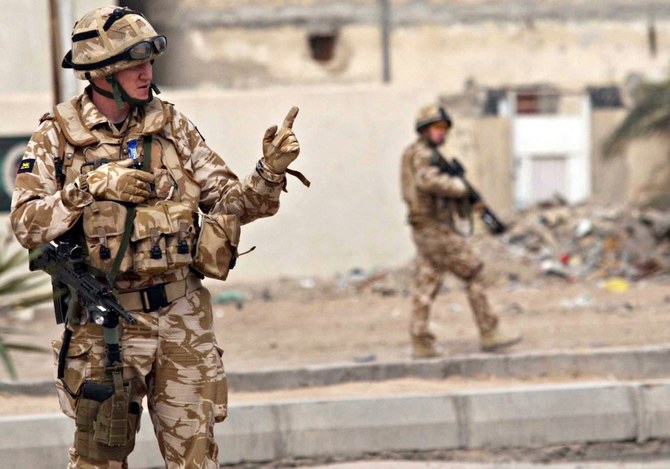The UK Ministry of Defence has settled 417 compensation claims related to the Iraq war, paying several million pounds to resolve accusations that Iraqis endured cruel and inhumane treatment — including arbitrary detention and assault — at the hands of UK troops.
The claims settled this year means that individual claims that have been settled since the invasion in 2003 run into the low tens of thousands.
The 417 settled this year came after High Court rulings found there were breaches of the Geneva Conventions and the Human Rights Act by British forces in Iraq.
Martyn Day, a senior partner with Leigh Day, the solicitors who brought the action, told The Guardian: “While we’ve had politicians like David Cameron and Theresa May criticising us for supposedly ambulance chasing, the MoD has been quietly settling claims. The settlements here cover a mix of cases, instances of false imprisonment, assault.
“What this shows is that when it comes to what amounts to policing in a foreign state, the military are simply not the right people to do it.”
One of the cases involved the death of a 13-year-old boy. Other court proceedings remain highly confidential.
The latest financial settlements were based on four test cases that were concluded in the High Court in 2017, when four men were awarded a total of £84,000 ($113,000) after three separate incidents in which British troops were found to have broken the Geneva Conventions.
One claimant in 2017 was awarded £33,000 by the court due to his unlawful detention and a beating it was determined he had suffered in 2007 by “one or more implements,” which probably involved rifle butts.
Two Iraqi merchant seamen settled with the ministry after their detention in 2003. One received £28,000 after an assault and hooding. The other collected £10,000, after also enduring a hooding.
Hooding, where typically a sandbag cover or some other cloth is placed over the head, was involved in many of the latest settled claims. It was banned in 1972 by former Prime Minister Ted Heath, but its practice continued in Iraq, where many soldiers admitted that they did not know the practice was illegal.
There has been no statement on the settled claims by the ministry, but an official disclosure released this week showed that the civil actions had been resolved.
It noted that 417 “Iraq private law” claims had been settled over 2020/21.
Hopes of any criminal prosecutions after the 417 settlements are slim, with the government shutting down the Iraq Historic Allegations Team in 2017.
The team was closed after the Al-Sweady inquiry concluded in 2014, when it found that allegations that British troops had murdered detained Iraqis and mutilated their bodies were fabricated.
The lead lawyer behind the fabricated claims, Phil Shiner, was subsequently struck off as a barrister.
Shiner’s conduct has been a significant part of a campaign by military veterans and government officials to prevent historic legal campaigns against British troops.
This campaign secured the passing of the Overseas Operations Act this year, which introduced a presumption against criminal prosecutions for five years after the event.
The act also brought in a longstop to prevent civil claims being brought after six years.
A ministry spokesperson told The Guardian: “Whilst the vast majority of UK personnel conducted themselves to the highest standards in Iraq and Afghanistan, we acknowledge that it has been necessary to seek negotiated settlements of outstanding claims in both the Iraq civilian litigation and Afghan civil litigation.”
The ministry added that Service Police and the Service Prosecuting Authority remained open to the possibility of considering criminal allegations should new evidence emerge.

